Home » Posts tagged 'In English' (Page 3)
Tag Archives: In English
Adrian Habura’s Visit at the University of Edinburgh
In the second half of April, a member of our research group, Adrian Habura, travelled to Edinburgh to visit the School of Philosophy, Psychology & Language Science (PPLS) at the University of Edinburgh and attend two conferences there.
The first conference was organized by the Northern Association for Ancient Philosophy (NAAP) and took place on the 19th and 20th of April. Habura had there an opportunity to listen to talks focused on various issues in the history of ancient philosophy and its reception. At the end of the first day, there was a special session devoted to the memory of Sarah Broadie (1941-2021), an English philosopher and expert in ancient philosophy, focusing on both ancient and contemporary ethics.
The second conference was organized by the British Society for History of Philosophy and took place in the building of the Royal Society of Edinburgh between 21th and 23th of April. Some sessions there were focused on issues in ancient philosophy. This conference too had a special section devoted to Sarah Broadie and especially to her book, Plato’s Sun-Like Good (2021).
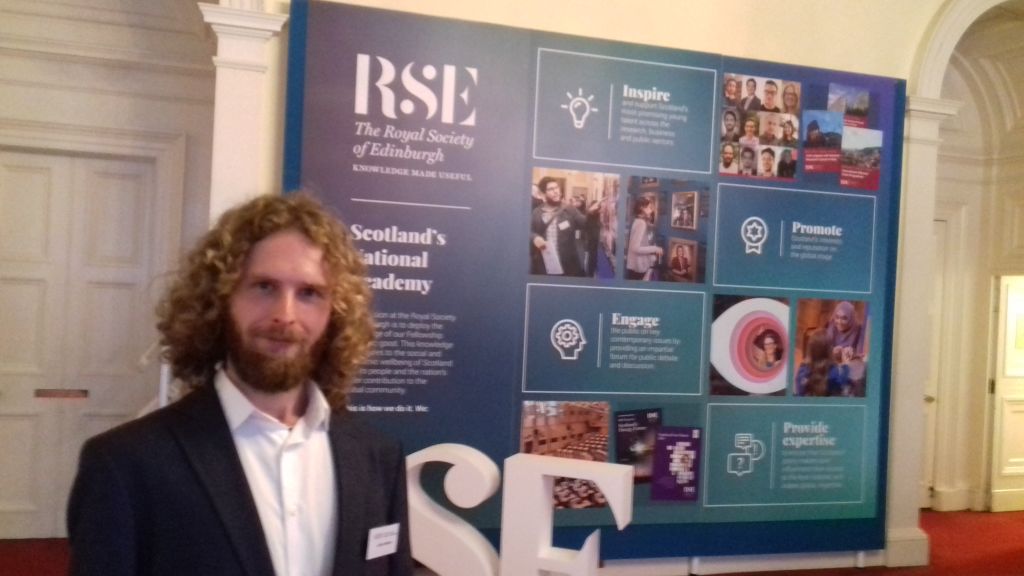
Although A. Habura did not deliver his paper at the conferences, he gave a talk: Władysław Tatarkiewicz (1886-1980). Life and Writings – Reception of Aristotle – Ethics, which was presented at the research seminar to Dr. Damian Caluori and Ph.D. students. Habura outlined Tatarkiewicz’s biography and his works referring to Aristotle’s thought. The main point was to sketch the Stagirite’s influence on Tatarkiewicz’s ethical considerations. The paper was subjected to a discussion and Habura received a valuable and helpful feedback, especially from D. Caluori.
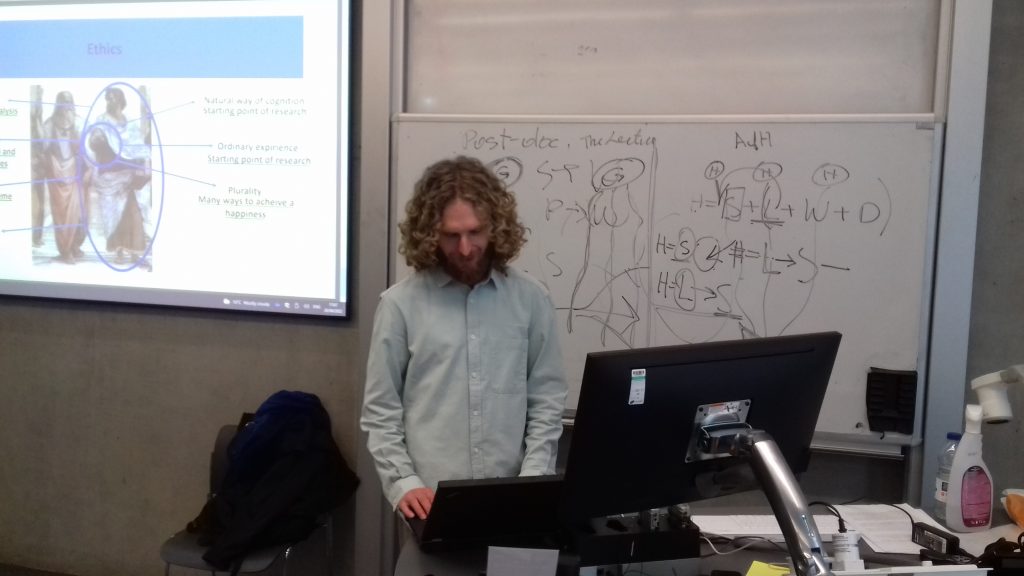
A. Habura’s visit in Edinburgh was possible thanks to the grant from The W. Bednarowski Trust, and was co-funded by the Institute of Philosophy (University of Zielona Góra, Poland) and from the overheads of the past AΦR project.
A Visit of a Guest from Vilnius University
Jonas Čiurlionis, Ph.D., who started to co-operate with AΦR research group in the autumn of 2021, has paid us a visit under the Erasmus agreement between Vilnius University (Lithuania) and University of Zielona Góra. Dr. Čiurlionis researches philosophical principles of ancient scientific ideas, including those of Aristotle, their development and reception. More information on his activities can be found here.
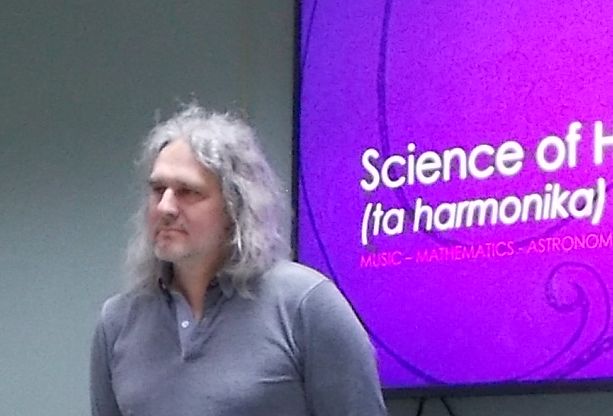
At the University of Zielona Góra dr. Čiurlionis has delivered English lectures for graduate students in the doctoral school, for undergraduate students of philosophy and for students of physics. All his talks were devoted to various aspects of mathematical, harmonical and musical foundations of scientific theories of antiquity, for example, concept of four elements, Platonic theory of creation of the world, or Aristotelian theory of movement and change. What was of special significance for the members of the AΦR group, was that dr Čiurlionis explored extensively reception and development of these concepts later in antiquity, in the middle ages and Renaissance.
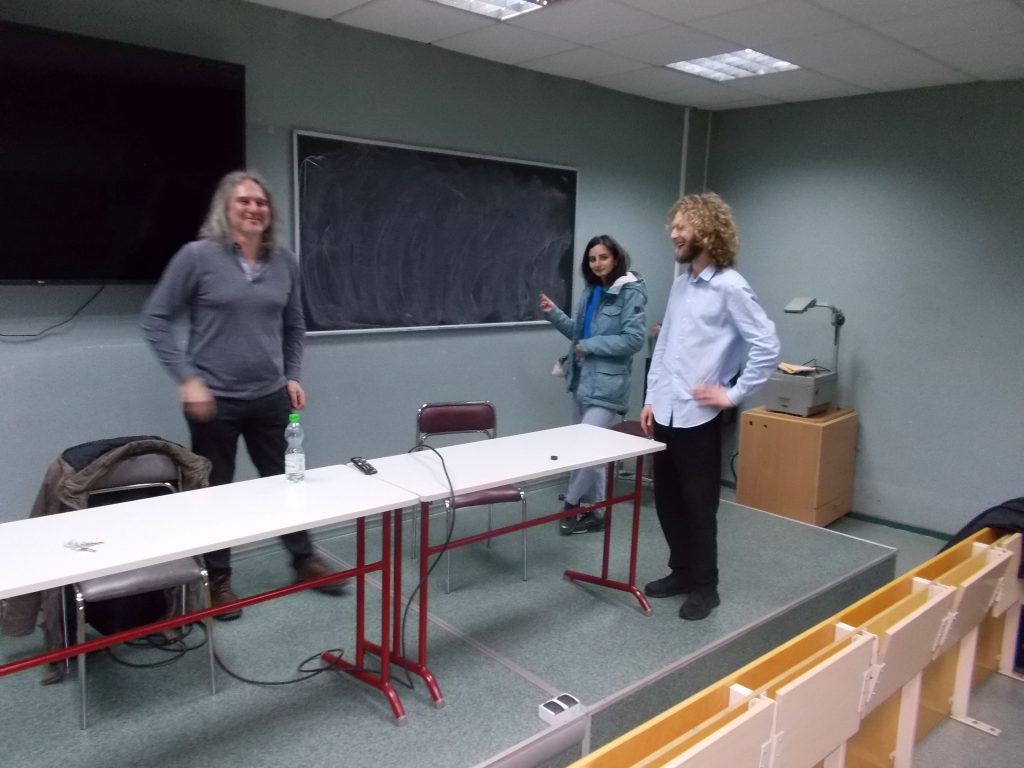
One of the aims of dr. Čiurlionis’ visit in Zielona Góra was to take an essential part in doctoral seminar (in Polish) and consult the progress of Adrian Habura, M.A., who is composing his disseration on reception of Aristotle’s philosophy in works of Władysław Tatarkiewicz, for dr. Čiurlionis was appointed as an auxiliary supervisor for A. Habura’s thesis.
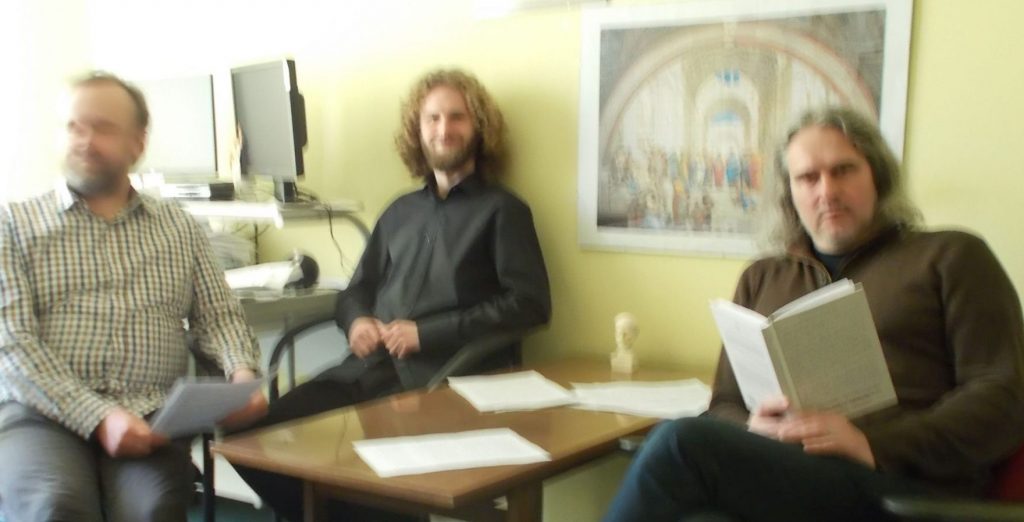
A View of Plato’s Paths in Poland
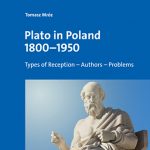
A lengthy, 480 pages, monograph book by T. Mróz was published in Academia Verlag’s series “Academia Philosophical Studies” as vol. 75. The title of the book is Plato in Poland 1800-1950. Types of Reception – Authors – Problems.
Some material from the book, including table of contents, is available on publisher’s website. The book attempts to make Polish Plato reception available to non-Polish readers. The years 1800-1950 cover essential phaenomena in modern Polish philosophy, for they encompass periods of reception of Western philosophical trends and the development of the Lvov-Warsaw school, neo-Messianism and neo-Scholasticism. The book discusses how each of these phaenomena contributed to interpreting Plato. The material is divided into three main parts focused on various types of reception.
The book is a final outcome of a project sponsored by Polish government within the National Programme for the Development of Humanities funding scheme. An essential collaborator in this project was Una Maclean-Hańćkowiak, who patiently edited the author’s style.
Plato between Scotland and Poland
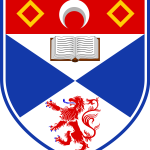
In 2018 “Journal of Scottish Philosophy” (vol. 16, iss. 2) published a paper which was not, in fact, discussing Scottish philosophy as such, but was devoted to an episode in history of historiography of ancient philosophy and classical studies in Scotland.
The title of the paper clearly defines its topic: Scottish-Polish Cooperation on Plato at the Turn of the Twentieth Century. This paper discusses an example of Scottish-Polish cooperation on research, undertaken at the turn of the twentieth century, into the dialogues and philosophy of Plato. Two scholars were involved in this research: the Scottish classical scholar and historian of ancient philosophy, Lewis Campbell (1830–1908), and the Polish Plato scholar and philosopher, Wincenty Lutosławski (1863–1954). Their research on the chronology of Plato’s dialogues is analysed and the reception of their works discussed. The paper is enriched with some excerpts from their correspondence.
Unfortunately, the paper is not accessible on the journal’s website. If anyone, however, would like to receive an offprint, feel free to email the author: T.Mroz@ifil.uz.zgora.pl
Censorship against Plato Scholars and Plato Himself

A volume on various aspects of relations between censorship, politics and oppression was published in 2018 by Gdańsk University Press. The book was a result of an international conference which took place in Gdańsk in 2017.
A paper by T. Mróz, included in this collective volume, discusses three cases of censorship on works of Polish Plato scholars who were active in three various periods of Polish history. First, the title of W. Lutosławski’s book on Plato was shortened by Imperial Russian authorities in Warsaw, they removed the word “socialism” from the title of his book on Plato. Its final version was then reduced to “Plato as the Creator of Idealism”.
S. Lisiecki, in turn, translated dialogues and wrote extensive introductions to them, but only his Republic saw the light of day in the interwar period, while all the remaining dialogues were left unpublished (but some of them, fortunately, will be published this year!). His leaving the clergy and Roman Catholic church might have been one of the reasons of his difficult situation in Polish academia.
Finally, W. Witwicki’s translation of the Republic with his commentaries appeared in print in 1948. After his death, the second edition was published in 1958, but some of his ironic and critical remarks on totalitarian system were removed.
Paper by T. Mróz can be downloaded from the University’s repository here.
Lewis Campbell and his Plato

A paper on Lewis Campbell (1830-1908), who was an iconic figure of St Andrews and Scottish Platonism, appeared in a collection of papers from an International Society for Neoplatonic Studies annual conference in Olomouc in 2017. The volume was published in 2019 and includes papers on ancient, mediaeval and modern interpretations of Platonism (contents of the book on the Prometheus Trust website). In his paper T. Mróz examined the history of the most significant works by Campbell, his studies and editions of the dialogues, and attempted to present the consequences of his conclusions for interpreting Plato’s philosophy.
The paper is free to download from the University’s repository here.
Lutosławski on Russell’s Plato
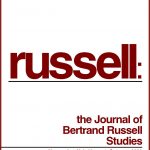
A paper by Tomasz Mróz titled Letters of Bertrand Russell and Wincenty Lutosławski on Immortality, Matter and Plato was published in “Russell. The Journal of Bertrand Russell Studies” (1, vol. 40, 2020, pp. 27-42; DOI: https://doi.org/10.15173/russell.v40i1.4417).
The paper presents letters between Wincenty Lutosławski and Bertrand Russell, but what seems to be the most interesting regarding AΦR are the post-war letters on Russell’s History of Western Philosophy, for despite their different philosophical positions, Lutosławski’s opinion on this work as a whole was favourable, in particular the chapters on Plato. Such an assessment was the exception rather than the rule for that book, and knowing Lutosławski’s general recognition in Platonic studies, Russell forwarded the letter to his publisher.
Full text can be downloaded here, from the journal’s website.
Recent commentaries